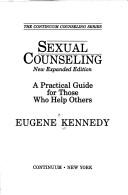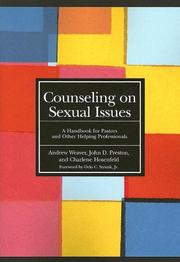| Listing 1 - 10 of 87 | << page >> |
Sort by
|
Book
ISBN: 1642799254 Year: 2020 Publisher: : Morgan James Publishing,
Abstract | Keywords | Export | Availability | Bookmark
 Loading...
Loading...Choose an application
- Reference Manager
- EndNote
- RefWorks (Direct export to RefWorks)

ISBN: 0826405029 Year: 1989 Publisher: New York (N.Y.): Continuum
Abstract | Keywords | Export | Availability | Bookmark
 Loading...
Loading...Choose an application
- Reference Manager
- EndNote
- RefWorks (Direct export to RefWorks)

ISBN: 0829816186 Year: 2005 Publisher: Cleveland Pilgrim Press
Abstract | Keywords | Export | Availability | Bookmark
 Loading...
Loading...Choose an application
- Reference Manager
- EndNote
- RefWorks (Direct export to RefWorks)
Book
ISBN: 9789032342550 Year: 2010 Publisher: Assen Van Gorcum
Abstract | Keywords | Export | Availability | Bookmark
 Loading...
Loading...Choose an application
- Reference Manager
- EndNote
- RefWorks (Direct export to RefWorks)
Book
ISBN: 178592186X Year: 2016 Publisher: London, England ; Philadelphia, Pennsylvania : Jessica Kingsley Publishers,
Abstract | Keywords | Export | Availability | Bookmark
 Loading...
Loading...Choose an application
- Reference Manager
- EndNote
- RefWorks (Direct export to RefWorks)
Book
Year: 2012 Publisher: Oslo, Norway : Norwegian Knowledge Centre for the Health Services,
Abstract | Keywords | Export | Availability | Bookmark
 Loading...
Loading...Choose an application
- Reference Manager
- EndNote
- RefWorks (Direct export to RefWorks)
All health care professionals have a role in promoting sexual health, knowledge and allowing for questions. Sexual problems are fairly common. People are, however, reluctant to seek help. In this report we aim to answer questions on the effect of sexual therapeutic interventions on people with different sexual problems. Sexual therapeutic interventions overall are effective for people with sexual problems. This was shown for a broad spectrum of both populations and sexual problems.1. In men with erectile dysfunction group therapy had a positive effect alone or as supplement to medical treatment (sildenafil).2. There was a positive effect of sexual therapeutic interventions (as cognitive therapy) for women with loss of sexual desires and orgastic dysfunction. It was unclear if sexual therapeutic interventions had any effect on gynecological pain in women. Sexual function was improved after short sexual therapeutic interventions in women with gynecological cancers.3. For couples with sexual problems there were improvements with couple therapy with communication skills and conflict solving, as a supplement to sexual therapy.4. For people with severe mental illness we found positive effect of different sexual therapeutic interventions to promote sexual health.5. Self help, as information in written or audio/visual material (bibliotherapy) had an overall positive effect for men and women regardless of sexual problem.6. It was not clear if sexual therapeutic interventions had a positive effect on men with cancer. The interventions might be harmful for this group. The results, however, must be interpreted with caution as the studygroups were small, there are limitations in methodological quality and large variations in what is defined and presented as sexual therapeutic interventions. We can not rule out a possible publication bias in the material which means that studies with a negative effect might not have been published or not identified by us.
Book
Year: 2012 Publisher: Oslo, Norway : Norwegian Knowledge Centre for the Health Services,
Abstract | Keywords | Export | Availability | Bookmark
 Loading...
Loading...Choose an application
- Reference Manager
- EndNote
- RefWorks (Direct export to RefWorks)
All health care professionals have a role in promoting sexual health, knowledge and allowing for questions. Sexual problems are fairly common. People are, however, reluctant to seek help. In this report we aim to answer questions on the effect of sexual therapeutic interventions on people with different sexual problems. Sexual therapeutic interventions overall are effective for people with sexual problems. This was shown for a broad spectrum of both populations and sexual problems.1. In men with erectile dysfunction group therapy had a positive effect alone or as supplement to medical treatment (sildenafil).2. There was a positive effect of sexual therapeutic interventions (as cognitive therapy) for women with loss of sexual desires and orgastic dysfunction. It was unclear if sexual therapeutic interventions had any effect on gynecological pain in women. Sexual function was improved after short sexual therapeutic interventions in women with gynecological cancers.3. For couples with sexual problems there were improvements with couple therapy with communication skills and conflict solving, as a supplement to sexual therapy.4. For people with severe mental illness we found positive effect of different sexual therapeutic interventions to promote sexual health.5. Self help, as information in written or audio/visual material (bibliotherapy) had an overall positive effect for men and women regardless of sexual problem.6. It was not clear if sexual therapeutic interventions had a positive effect on men with cancer. The interventions might be harmful for this group. The results, however, must be interpreted with caution as the studygroups were small, there are limitations in methodological quality and large variations in what is defined and presented as sexual therapeutic interventions. We can not rule out a possible publication bias in the material which means that studies with a negative effect might not have been published or not identified by us.

ISBN: 0316589403 9780316589406 Year: 1980 Publisher: Boston (Mass.): Little, Brown and Company,
Abstract | Keywords | Export | Availability | Bookmark
 Loading...
Loading...Choose an application
- Reference Manager
- EndNote
- RefWorks (Direct export to RefWorks)
Book
ISBN: 1071801198 1483309703 1506351336 9781071801192 9781483309705 9781506351339 Year: 2017 Publisher: Los Angeles, CA : SAGE Publications, Inc.,
Abstract | Keywords | Export | Availability | Bookmark
 Loading...
Loading...Choose an application
- Reference Manager
- EndNote
- RefWorks (Direct export to RefWorks)
A unique evolutionary perspective provides readers with the most extensively researched means to understand human sexual behavior. A wide range of powerful real-life case studies provides unique perspectives that present a more human view of sexual variations rather than one that is strictly clinical. Comprehensive coverage includes the history of sexuality; key theorists involved in developing approaches for working with individuals with sexual disorders; an overview of the modern approaches and schools of sexuality; the role of the Internet in changing sexual values; the biology and physiology of sexuality enhanced by the latest research in neuroscience; and more. Chapters on sexual variations include body image, arousal, gender variations, cultural views, anxiety, sexual crimes/violence, aging and sexuality, and recent trends. Novel models and illuminations of LBGTK sexualities help fully explain many aspects of sexual behavior that have been poorly understood. Close to a thousand references reflect the foundational and recent scholarship in the field to keep readers up to date. Interviews with the leaders in the field share the insights of evolutionary psychology co-founder and sexual aggression expert David M. Buss; renowned anthropological love researcher Helen Fisher; evolutionary sexuality pioneer Gordon Gallup; researcher into the evolutionary psychology of relationships Douglas Kenrick; Kinsey Institute Director and researcher C. Sue Carter; controversial reproductive scientist J. Philippe Rushton; author and transgender development clinician Diane Ehrensaft; prolific gender identity scientist Kenneth Zucker; evolutionary reproductive scientist Todd K. Shackelford; fear and anxiety scientist, researcher, and author Joseph LeDoux; and iconic memory and repression scientist Elizabeth F. Loftus.
Sexual disorders. --- Sexual disorders --- Sex counseling. --- Treatment.
Book
ISBN: 1071801112 1506350070 1506350089 9781071801116 9781506350073 9781506350080 Year: 2017 Publisher: Los Angeles, CA : SAGE Publications, Inc.,
Abstract | Keywords | Export | Availability | Bookmark
 Loading...
Loading...Choose an application
- Reference Manager
- EndNote
- RefWorks (Direct export to RefWorks)
Every chapter is comprised of information that is sound, evidence-based, and grounded in current literature to provide readers with the most accurate and up-to-date information. Case studies and application exercises throughout the book bring concepts to life and give students an opportunity to apply what they learn to real-world situations. A new Contextualized Sexuality Model, which presents a framework for understanding sexuality, helps professors plan their courses. The book's focus on the nature of professional identity, its value to the profession and the professional, and ways to further development of professional identity during professional practice provides students with valuable guidance they can use throughout their careers.
Sex counseling. --- Sexual orientation. --- Sexual attraction. --- Sex.
| Listing 1 - 10 of 87 | << page >> |
Sort by
|

 Search
Search Feedback
Feedback About UniCat
About UniCat  Help
Help News
News